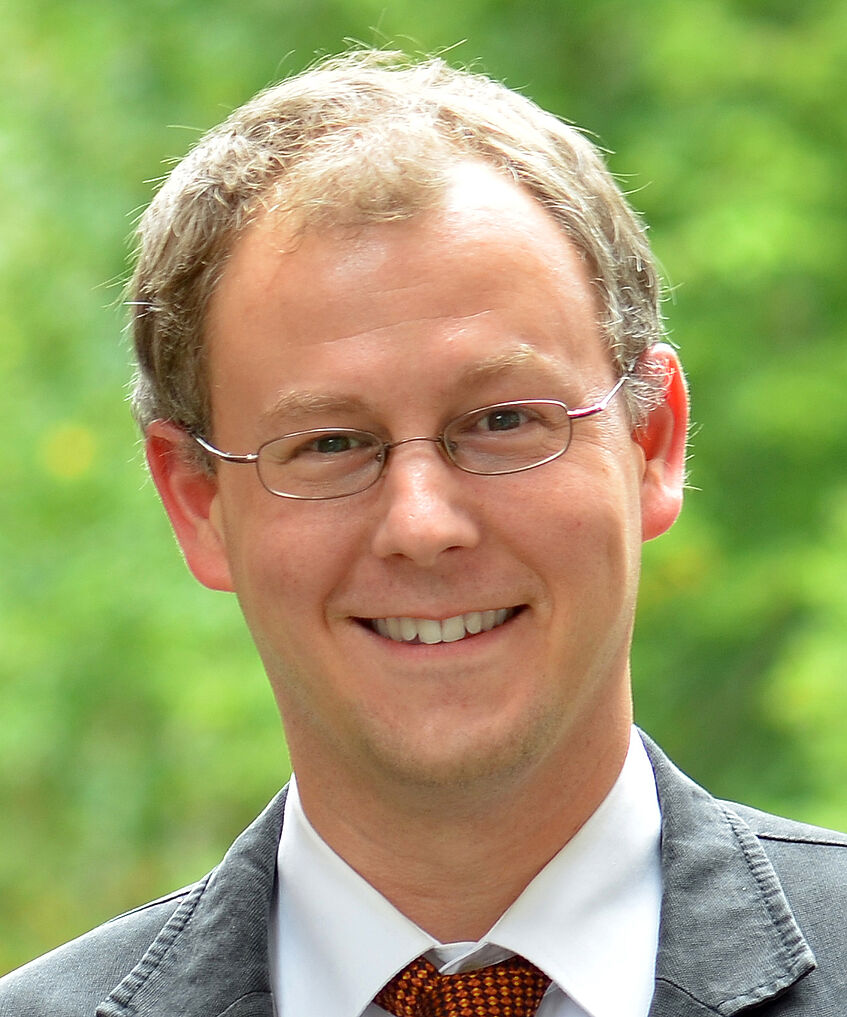Habilitationen in Arbeit
Boris Paschke
Boris Paschke
Eucharistic Prayer to Jesus Christ in the Apocryphal Acts of John
While the canonical New Testament contains or refers to only a few prayers to Jesus Christ (cf. John 14:14; Acts 7:59-60; 2 Cor 12:8; Rev 22:20), the apocryphal acts of the apostles provide numerous of such prayers, including Eucharistic ones.
The Acts of John from the second century C.E. are generally regarded the oldest of the apocryphal acts. They contain two long Eucharistic prayers that are exclusively addressed to Jesus Christ (ActJ 85 and 109). Even though these prayers are of an immense value for the study of early Christian spirituality and liturgy, they have not been the subjects of an in-depth investigation so far.
This neglect is due to the two-fold thesis of Josef-Andreas Jungmann who stated that Eucharistic prayer to Jesus Christ was not practiced before the fourth century C.E. and that the apocryphal acts of the apostles, because of their ‘heterodox’ character, are not relevant for the study of ‘mainstream’ Christian liturgy.
There are an increasing number of scholars who question Jungmann’s thesis. Nevertheless, an examination of the Eucharistic prayers to Jesus Christ in ActJ 85 and 109 is still a desideratum. By investigating these prayers in their historical and narrative contexts, the present habilitation project makes a worthwhile contribution to research on early Christianity.
Kurzvita
1976 geboren in Siegen (D)
1995 Abitur in Siegen
1997 - 2004 Theologiestudium in Gießen und Leuven
2009 Promotion, Evangelische Theologische Faculteit (ETF), Leuven
2009 - 2014 Postdoc-Assistent, ETF Leuven
2011 - 2014 Oberassistent für Forschung, FWO Flandern
seit 2014 Gastprofessor für Neues Testament, ETF Leuven
seit 2015 Lehrer für Evangelische Religion an weiterführenden Schulen in Brüssel

J. Andrew Doole
J. Andrew Doole
The First Person Plural in Paul
The letters of Paul reveal a complex matrix of personal and communal speech, and are usually understood in the context of the apostle and his co-workers addressing a Christian group in another city. Paul can write in both the first person singular and the first person plural, and often switches between the two. It is however by no means always clear who is meant in references of “we”, “us” and “our”.
Previous scholarship has identified the “we”-group – in various instances and within each specific context – as referring to all Christians, “Pauline” Christians, “Jewish” Christians, humankind, the “strong”, the apostles, the co-senders of each letter, Paul with a specific colleague (e.g. Timothy or Barnabas), a rhetorical “we” of the author and reader, and an authorial “we” referring simply to Paul alone. Nonetheless, there is disagreement on the referent of many first person plurals in the Pauline corpus and there remain many instances where a tenable solution is yet to be found.
The aim of my research in this area is to provide the first comprehensive study of all instances of the first person plural in the seven undisputed letters of Paul, with the hope that the clarity of examples in texts such as 1 Thessalonians, Philippians and Philemon will shed light on the difficult references in Galatians and the Corinthian correspondence. Finally the letter to the Romans –written in Paul’s name alone to a presumably ethnically diverse group which he had neither founded nor ever visited – can be analysed, and the tendencies of Paul’s other letters can be brought to bear on the interpretation of the “we”-passages in his magnum opus.
The results may not only help to clarify syntactic and theological issues in “we”-passages but also contribute to the continued discussion on possible interpolations and the (dis)unity of the canonical letters.
It is by no means to be claimed that Paul’s use of the first person plural reveals only one consistent pattern, rather that he adapts its use subconsciously but nonetheless purposefully in his address to groups of Christians, from groups of Christians, and about groups of Christians. Once we see how Paul speaks of “us”, we might have a better sense of his theology and self-understanding.
Vita
Born 1984 in Belfast, Northern Ireland
2004–2007 BA (Hons.) Theology, University of Oxford
2007–2011 doctoral research in New Testament Studies at the University of Marburg cum laude with the dissertation “What was Mark for Matthew? An Examination of Matthew's Relationship and Attitude to his Primary Source”2013 Dr. theol.
since 01.07.2015 Assistant Professor in New Testament at the Department of Biblical Studies and Historical Theology, University of Innsbruck

John Van Maaren
Der Brief des Paulus an die Römer und antikes Vereinswesen
Der Brief des Paulus an die Römer wurde als die meist analysierte Schrift der westlichen Literatur beschrieben. Jedoch, keine Forschung hat es mit der engsten institutionellen Parallelen verglichen—das heißt, das dauerhafte, nichststaatliche Vereinswesen, das insbesondere von Handelszünften, Migrantengemeinschaften, und kultisch VerehrerInnen in Rom und im gesampten römisches Reich gestaltet werden. Dieses Projekt wendet alle Arten der daten aus griechisch-römischen Vereinswesen zum Brief des Paulus an die Römer an. Diese Vergleich ist nötwendig, erstens wegen der breiten Anerkennung, dass Paulus eine spezifische Gemeindesituation anspricht und nicht einfach eine Zummanfassung seiner Theologie gibt, und zweitens wegen der dauerhaften Uneinigkeit darüber, was diese Gemeindesituation ist und den anlass dass Paulus ihnen scrieb. Der Vergleich mit Griechisch-römischen Vereine ist besonders wichtig um den Sozial- und Anstatsaktivitäten von Christusvereine besser zu verstehen weil sie geben verscheidene Arten Daten. Wir wissen die römische Christusgemeinde fast vollständig aus literarischen texten, aber wir wissen andere vereinigungen wegen aus Inschriften und ander nichtliterarische Quellen. Das bedeutet, dass wir besser Daten über ihre Große, Finanzen, Führungsstrukturen, und internen und externen Beziehungen haben. Dieses Wissen kann neuen Möglichkeiten vorschlagen und aktuell Annahmen auf der römische Christusgemeinde beherrschen. Gegenwärtig, divergierende Rekonstruktionen der institutionellen Strukturen der römischen Christusgruppen und ihrer Beziehung zu Jüdischegruppen unterstützen entgegengesetze Auslegungen des Briefs des Paulus an die Römer. Durch den Vergleich unsere begrenzten Daten über die römischen Christusgruppen mit ihrerer engsten institutionellen Parallelen, dieses Projekt sucht die sozialen und organisatorischen Praktiken der römischen Christusgruppen besser zu rekonstrieren und deshalb beitet eine sicherere Grunde für die Interpretation des Brief an der Römer. Die Ergebnisse versprechen bedeutsam wegen des übermässigen einflusses des Römerbrief auf unsere Verstandnis des Ursprung römischen Christentum, Paulus Denken, und, allgemeiner, auf christliche Theologie und zeitgenössischen Kulturen.

